Women
The Indecency In Breast Exposure

Dress the way you
want to be addressed”, is a popular slogan used to describe the widely held belief that the way you dress tells a lot about who you are.
This insinuation may not be totally correct, but it is difficult to explain what is societally decent in exposing one’s body parts that are supposed to be covered by clothes.
So much have been said about indecent dressing in Nigeria, particularly as it concerns girls in tertiary institutions and those who seek to be modern. They range from exposure of such parts of the body including the upper laps, buttocks, stomach and breasts.
The focus of this piece will however, be on exposure of breasts, popularly called cleavage.
The word “Cleavage” as commonly used in Nigeria, describes an exposed top side of the breasts of a woman. In the days of yore, especially before 1831, the term, “decolletage was commonly used to describe today’s cleavage.
Decolletage is a French word derived from the word “Decolleter” meaning to reveal the neck or more literally without a collar. The term was first used in English Literature.
In its strict usuage then, Decolletage is the neckline extending about two hand breast from the base of the neck, front and back.
Ordinarily, decolletage describes the upper part of a woman’s torso, between her waist and neck. It comprises her neck, shoulder, back and chest, that is exposed by the neckline of her clothing. In common usuage, though, Decolletage is most commonly applied to a neckline that reveals or emphasises cleavage.
However, in reality, how much cleavage exposure that takes place at any point in time depends on the purpose of the cloth or dress worn. From its origin, low cut necklines are a feature of ball-gowns, evening gowns, leotards, lingerie and swim suit, among other fashions.
Although decolletage does not in itself prescribe the extent of exposure of a woman’s upper chest, the design of a decollete garment takes into account current fashions, aesthetics, and expression of social norms and the occasion when a garment will be worn.
Though neckline styles have varied in western societies and decolletage may be regarded as aesthetics and an expression of feminity, in some parts of the world, any decolletage is considered provocative and shocking.
Unfortunately in Nigeria, the word “provocative” and “shocking” are only seen by ladies with a lot of cleavage exposure as “arousing interest of the opposite sex” in a pleasant manner.
This is against the intended message of seeing cleavage exposure as attracting annoyance or anger in a strange or awkward manner.
This is the crux of the matter.
It is now fashionable for the average Nigerian girl or lady who wants to be seen as modern to wear tops with ample cleavage exposure, not minding the occasion.
Unfortunately for girls in tertiary institutions they end up attracting more than what they bargained for.
In the words of a senior lecturer who spoke to Women/Style/Living Desk anonymously. “It is now a common sight to see youths either shabbily or offensively dressed on the streets, where sensitive parts of the body are exposed.
“This is unNigerian and amounts to a serious affront on Nigeria’s sense of morality and decency.
“Most irritating is the prevailing trend among our youths who exposed themselves, clad in dresses that reveal the essentials, boobs, buttocks, backs and hips.
“The common sights on our streets are boys and girls wearing trousers and skirts falling from their buttocks and they call it sagging”.
All of these traits now in Nigerian youths and some mothers who are supposed to caution their children are imbibed from foreign cultures without a thought as to when such attire may be worn.
According to history, gowns which expose a woman’s neck and top of her chest were very common and non-controversial in Europe from about the 11th century to the Victorian period in the 19th century.
The Victorian period is the period of the reign of Queen Victoria of the United Kingdom, especially the 19th century.
During this period, ball or evening gowns especially featured low square decolletage designed to display and emphasise cleavage.
However, the wearing of low cut dresses which expose breasts was considered more acceptable then, than they are today, with a woman’s bared legs, ankles, or shoulders considered to be more risqué than exposed breasts.
It is noteworthy that during the 16th century, women’s fashion with exposed breasts was common in society, even among queens and commercial sex workers. It was therefore emulated by all classes of women.
It is in line with this that cleavage exposure seems to be widely viewed in the Nigerian context among girls and ladies who indulge in it.
In aristocratic upper class circles, though, the display of breasts was at times regarded as a status symbol, as a sign of beauty, wealth or social position.
From the Renaissance onwards, the bared breasts even invoked association with nude sculptures of classical Greece that were exerting an influence on art, sculptures and architecture of the period.
After the French revolution, decolletage became larger in the front and less in the back. It continued during the fashion period of 1795 to 1820, when many women wore dresses which bared their bosom and shoulders.
But during the Victorian period, social attitude required women to cover their bosom in public.
For ordinary wear, high collars were the norm.
Towards the end of the Victorian period, the full collar was the fashion, though some decollete dresses were worn on formal occasions.
Over the years, that followed decolletage passed through various changes and or adjustment, but during a short period in 1964, topless dress design appeared at fashion shows.
However, those who wore the dresses in public found themselves arrested on indecency charges.
The implications are that in western and some other societies, such as Nigeria, there are differences in opinion as to how much body especially breast, exposure is acceptable in public.
Unfortunately, the level of cleavage exposure in Nigeria has become not only appalling, but has been found to be the cause of numerous criminal sexual attacks on women in Nigeria.
This is mostly due to the low level of exposure and awareness of the Nigerian society, compared to the western societies from where these traits were copied.
It can therefore be argued that the remote causes of most of the sexually related criminal acts that plaque the Nigerian society today are traceable to this trend of indecent dressing.
Women
The Desire Of Every Woman In Marriage
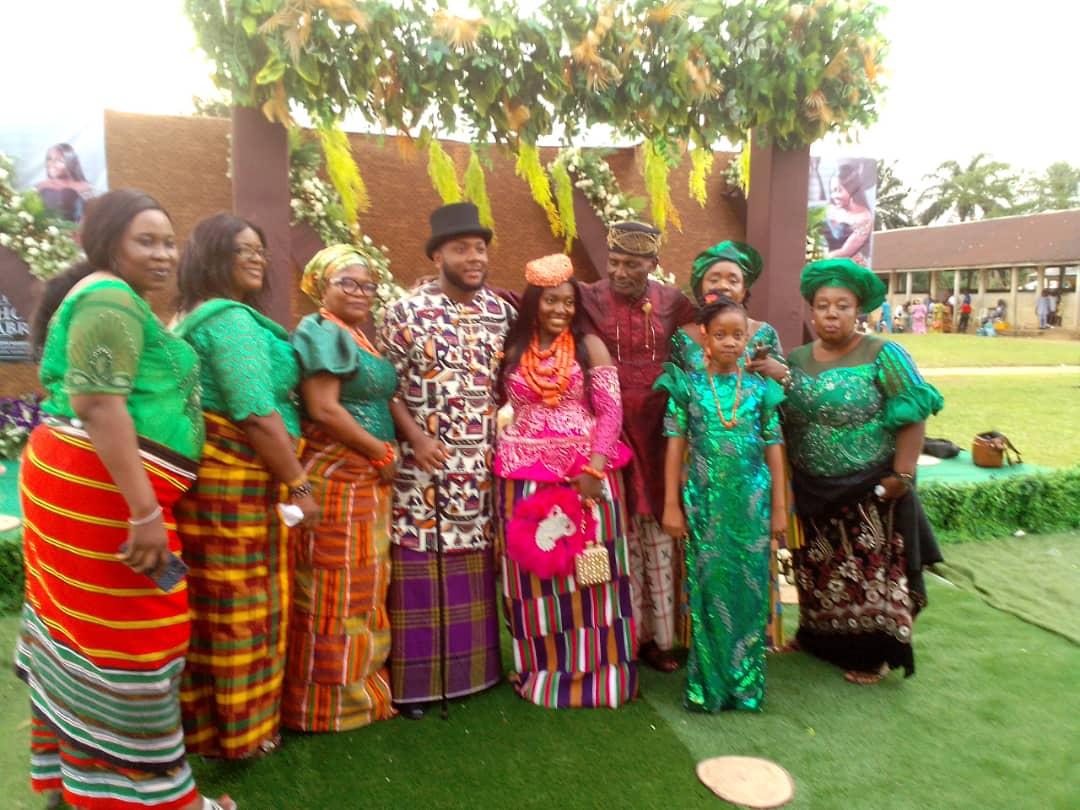
A woman needs a man that is honest, trustworthy, nice, loving and financially stable.
There are no two ways about finance in marriage. No matter the level of love, If there is no money, it is always difficult.
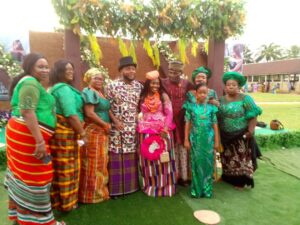
Referring to the Biblical belief in Genesis 3:Your desire shall be unto you……..
That is one aspect the woman expects her husband to take care of.
A woman wants a husband that is not lazy, at least helping to do one or two things. A man that is educated and intelligent.
She knows that there is a trait that her husband has. Traits of taking care of people, giving freely to people and caring for her family.
A woman wants to love a husband that has family interest at heart. A man that spends time with his family, remembering his family even as he is away from home.
A woman should not antagonise her husband because of one error or the other. No matter the level of offence he may have committed, you still show some love.
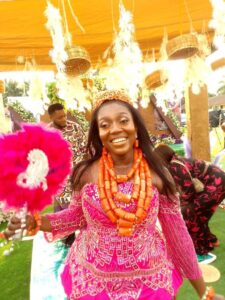
According to the Scripture, it is with wisdom that the women builds her home.
It is not as if the woman will not monitor her husband, but to certain limit. Don’t be a monitoring spirit. Don’t allow anything to take your joy.
Don’t loose trust in your husband.
The idea of checking your husband’s phone should be discouraged. The more you check your husband and his phone, the more you loose your joy.
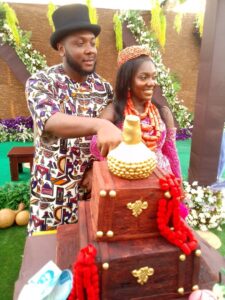
The home should not be a battle ground for a woman and man. A woman should be able to ask herself if the check on her husband will pay her any good.
Draw a line to a point where you checkmate your husband’s activities.
A woman wants a man that will love her and telling her you love her will be all she desires.
Eunice Choko-Kayode
Women
What Women Want In Yet-To -Be Husbands
What women want in their yet-to- be husbands matters a lot as far as marriage is concerned.
A woman desires a good fnancial prospect. Interestingly, some modern women place a man’s financial potential as more desirable than they have in the past.
Many decades ago, women ranked it lower on the list. It still comes in after items like love and maturity, but perhaps today’s women realise that a good economic partner is good husband material.
Good health has been an important characteristic for women through the 20th century and remains so these days. One might argue that because we’re living even longer, health plays a huge role in the success of a marriage. Women are anxious to know that their partners are healthy to be able to run the family together.
You discover that in most faith based organisations, would- be couples are mandated to go for medical tests to ascertain their health status as it concerns HIV/AIDS, Genotype and other related ones. This according to stakeholders is to ensure that couples raise healthy families.
Ambition has become less important to women over time, though it still being considered even if women nowadays are thriving in the workforce competing with the male folk. It may be because more women are thriving in the workforce, they want a husband who has earning power but are not looking for him to be the sole provider.
More women want husbands with pleasing disposition. They may not want a man who is always moody. A man who is always cheerful is whom they desire.
Surprisingly, a man’s likes do not rank as high on women’s list of wants as it used to. Until recently, women are more willing to accept a man for who he his, despite the inevitable mood he may be.
Sociability from both men and women rank very high on their marriag material list. And for both sexes, it has been steadily moving up the list for many years. The rise of the “love marriage,” a partnership based on attraction rather than practicalities (like wealth or status) might mean that married couples are more likely to be friends and have mutual circles of friends.
A lot of couples want to associate with others and then socialise. Attending parties of other friends forms part of their marriage requirements.
Women have placed education and intelligence top making it one of their most desirable male traits for decades. This timeline coincides with more and more women receiving college education themselves. Once education becomes important in women’s lives, it is a more attractive trait in potential husbands.
Of course when a woman is educated, she is likely to go for an educated man. When they are gainfully employed, their income boost the family affairs faster.
Today, women are much more attracted to men who are interested in home and family than they ever have been. Men who have desire for their home and children is whom they desire.
After a days job, a man will come home to ensure that his children are comfortable. Because most women today are expecting to be in dual-earner relationships, they want husbands who will be happy and willing to contribute at home. More women today even report that they hope he will take the lead at home.
A woman wants a man who is emotionally stable and mature. Growing big physically is not the issue but maturity in the heart.
Men, too, place a heavy emphasis on a potential wife’s emotional maturity, signaling that it is a key quality for a stable partnership. Women seem to look past appearance to the heart of the matter.
A woman wants a man who is not easily provoked. Dependable character is what some women want in marriage.
Women want husbands that they can count on, and this has not changed in recent years. Yes, women look to their spouses to be lovers and friends, they also want them to be supportive and trustworthy. They want to know that their husbands will be there and remain loyal. Men, too, desire dependable character from their yet-to be wives.
Mutual attraction and love from the first appearance is what they want till they become old.
The highest-rated characteristic women seek from men is mutual attraction and love. Some no longer look for a man who will provide everything, afterall they are also educated and are gainfully employed, they want to be in love.
For some women, even when the man do not provide household needs, the love shown on her is enough. When women had no job prospects and needed to marry, they desired love . The women’s movement has not only helped women pursue careers, it has also given them more choice in love.
Women
Echoes Of IWD : Need To Invest In Women
As this year’s Internatinal Women’s Day (IWD) has come and gone, there are calls from different quarters on the need to invest in women so that we can achieve accelerated growth.
It was, indeed, a thing of joy when Rivers Women Unite For Sim, took delivery of large quantities of sanitary towels and some bags of rice provided them for this year’s celebration.
Many young women expressed joy that they got such gesture since some of them have financial problems getting sanitary towels whenever they are on.
Some secondary school students were also lucky to have a share of the benefits. They also got some sanitary towels.
The Rivers State Commissioner for Women Affairs organised a platform to celebrate and honour the women for the remarkable jobs they perform in their homes and society.
Addressing women on the occasion, the Hon. Commissioner for Women Affairs, Dr. Roseline Apawari Uranta, noted that women from time immemorial have been great pillars in achieving remarkable heights and stressed that IWD across the globe is pivotal all women for the roles they play in bringing, nurturing and sustaining life.
Dr. Uranta said that IWD, which started in 1911 and celebrated annually on March 8, is a global day that provides women a platform to address economic inclusion, participation in political and public life.
She said the day was set aside to look into lack of access to education for the girl-child, gender-based violence, child marriage, child trafficking, harmful cultural practices as well as other challenges facing women around the globe.
The Hon. Commissioner, who described March 8 as a day to celebrate the socio-economic, cultural and political achievements of women, emphasised that it is a day that offers women the opportunity to reflect on progressive achievements.
Noting that it is an opportunity to call for change, she stressed that it is also an opportunity to celebrate acts of courage and every achievement made by ordinary women who did extraordinary things and are remembered in history.
She noted that the IWD2024 theme:”Invest In Women, Accelerate Progress”, is timely and apt because according to her, to achieve gender equality, we must ensure that the rights, responsibilities and opportunities of women do not elude them.
Her words: ” We must see investing in women as a human right issue and consider investing in women as a social tool to eradicate poverty since women are helpmeet in the homes while a handful are breadwinners in their respective families”.
The commissioner urged women to uphold the deliberate act of investing in themselves, be it furthering formal education, developing a new skill as well as learning a trade.
“Shun idleness, always find something positive and productive to do, regardless of your age, social status and financial capabilities”, she said.
In a paper presentation, Dr. Dabota God’swill Jumbo, reiterated that investing in women would attract good and positive dividends to herself and the society at large and noted that it is essential in addressing poverty, hunger and climate change.
The guest speaker said women need more opportunities in elective and appointive positions, hence the need to encourage and support them in politics.
According to her, when you invest in women, they will be able to create safer environment devoid of gender-based violence.
In a goodwill message, the spokesperson, Rivers Women Unite For Sim, Mrs Charity Deemua appreciated the organisers for making it possible for women to gather and celebrate themselves.
She commended those who created a day like March 8 of every year to celebrate women and regretted that the girl-child was seen as a second-class person decades ago.
The former commissioner, Rivers State House of Assembly Commission, described those who taught it wise for women to celebrate as conquerors, tough and strong.
International Association of World Peace Advocates, a world-class organisation with the United Nations, honoured different categories of women.
In Cross River State, 150 women were empowered with about N15m to boost their small and medium scale businesses.
According to stakeholders, the women empowerment is vital in addressing social, economic and political challenges and will make them self-reliant.
An NGO, Association of Professional Women Engineering Technologists (APWET), said it’s aim is to promote professional excellence among engineering personnel, advocating for women and girl-child education.
With what we saw in terms of response to women’s call on issues affecting them from relevant authorities, we are optimistic that the women will do better whenever they are empowered.
If we must kick out cervical, breast and other forms of cancer in women, underage marriage, prostitution, we must invest in women.
There were goodwill messages from National Council for Women Societies (NCWS), International Federation of Female Lawyers (FIDA), Medical Women Association of Nigeria (MWAN), Nigeria Copyright Commission (NCC, Nigeria Association of Female Journalists (NAWOJ), among others.
By: Eunice Choko-Kayode
-
Sports2 days ago
Nigeria’s Onakoya Sets New Chess Record
-

 Niger Delta1 day ago
Niger Delta1 day agoA’Ibom Plans 486 Rural Road Repairs To Boost Agric
-

 Maritime2 days ago
Maritime2 days agoNigeria Records 3,310 Boat Mishaps In 10 Years
-

 News2 days ago
News2 days agoEFCC, Experts Warn Nigerians To Guard Against Cyber Crimes
-
Opinion2 days ago
Agriculture: Solution To Hunger, Inflation, Food Insecurity
-
News1 day ago
Pan-Igbo Group Hails Dangote Group For Reducing Diesel Price
-
Sports2 days ago
Minister Renews Hope For Sports Dev, Signs MoU
-
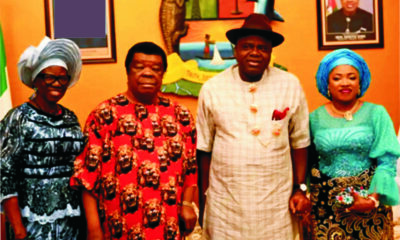
 Rivers1 day ago
Rivers1 day agoBayelsa LG Polls: BYSIEC Issues Return Certificates To Chairmen, Others

